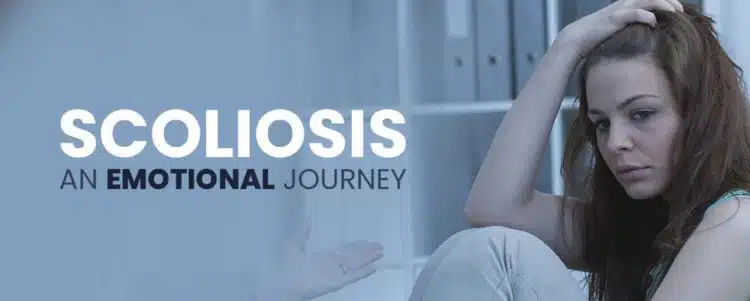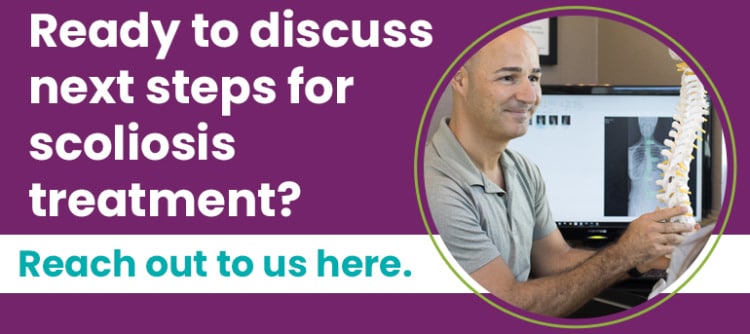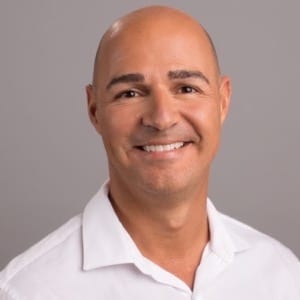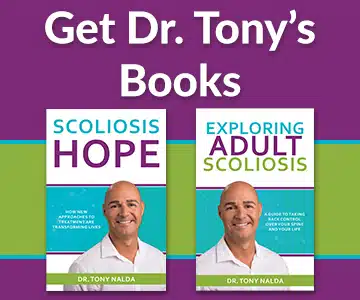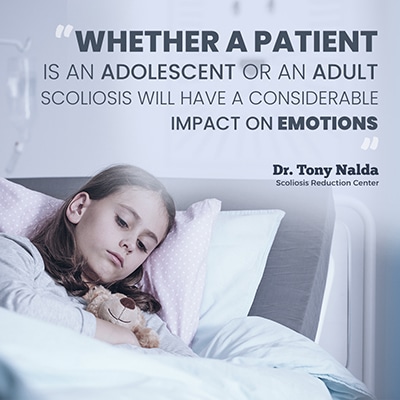
Scoliosis is a condition of the spine, and it has significant effects on the human body. Therefore, most scoliosis experts discuss the condition in terms of the physical, but I think it’s just as important to recognize its emotional impact. A full, comprehensive — and successful — approach to treatment cannot focus solely on the body and the abnormal spinal curvature; it must also focus on the emotional journey.
Whether a patient is an adolescent or an adult, scoliosis will have a considerable impact on emotions. Teens typically find themselves riding on an emotional roller coaster under normal circumstances. When scoliosis is also a part of the picture, it adds another emotional dimension that can be extremely difficult to deal with. Adults with scoliosis may be better suited to handle the emotions that come with the condition, but they still require support and understanding from others.
I want patients and their families to know that it is completely normal for scoliosis to have a profound impact on emotions. I cannot cure a negative emotional state, nor can I prolong a positive one; emotions come and go. But I can help by offering my knowledge and wisdom, and by maintaining an open dialogue. The most important thing is to ensure that patients are heard. They need to understand that their emotional challenges are valid, and that they have a real impact on living life with scoliosis. I am here to listen, but I also recognize the importance of relating to others what scoliosis patients experience on an emotional level.
Constant, Continuous Bad News
Scoliosis patients are rarely given reason to hope. In most cases, they are given bad news every single time they see a doctor or specialist. The reason for this is that scoliosis is a progressive condition that does not remain static. Even when a patient follows their doctor’s orders precisely and wears a Boston brace for 20 or more hours a day, the best they can hope for is the maintenance of the status quo.
Imagine having a medical condition that only worsened over time. Imagine being told bad news on a continuous basis. It would be quite difficult to maintain a positive, upbeat emotional state under those circumstances, wouldn’t it?
The progressive nature of scoliosis does not allow for breaks in the constant flow of bad news. It does not typically allow for patients to feel like their proactive efforts are leading to improvements. And it does not allow patients to feel very hopeful.
This reality is particularly difficult for adolescents with scoliosis to endure. The teen years are notoriously difficult and awkward, but at least most teens get to experience normal ups and downs, with the highs offsetting the lows. Unfortunately, for teens with scoliosis, the condition plays a major role in nearly every aspect of life. There are few highs to offset the lows, and this wreaks havoc on an already unstable emotional landscape.
Physical and Emotional Relief: Traditional Treatment
Being exposed to continuous bad news about scoliosis takes a toll on emotions. However, the promise of relief can mitigate the negative emotional impact.
Patients who receive traditional treatment look forward to the promise of a surgical solution. This gives them hope and helps them imagine a life in which scoliosis is not a primary concern. Sadly, the hope they feel is not without negative consequences. Surgery is expensive, invasive and risky. And it is not guaranteed to improve the condition. Nevertheless, it can provide physical relief, which often translates to emotional relief, as well.
Physical and Emotional Relief: Chiropractic-Centered Treatment
On the other hand, patients who receive functional, patient-centered treatments like those offered here at the Scoliosis Reduction Center® can look forward to actual reductions in the severity of their spinal curvatures — without surgery.
Every day, each one of our patients makes progress on an emotional journey. At first, it is quite difficult. They are incredibly eager to experience relief, but they can be intimidated by the process. We ask a lot of our patients in terms of their ability to participate actively in their own recovery. It involves a lot of hard work, as well as some patience. Results do not become evident overnight.
Eventually, the collaborative work that our staff members perform with our patients begins to pay off. You can see the positive emotional changes written on their faces. As their spinal curvatures improve, they begin to notice welcome changes in appearance and function. Their clothes start to fit a little better. They become more flexible and functional, too, which boosts confidence and creates a positive emotional uprising. They begin to change their perspectives on the future, too — patients who once saw the future as bleak and scary start seeing the coming weeks, months and years in a much more optimistic light.
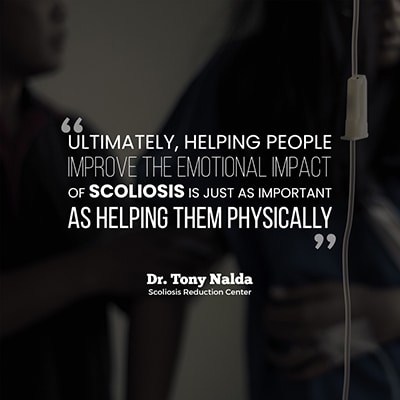
After about 90 days, the anxiety that patients have become so accustomed to starts to fall away. They can tell that they are getting better and that their hard work is paying off. They engage in their treatments with greater enthusiasm and they express gratitude for the changes they experience.
This emotional journey is not the same for everyone. But for those who engage in chiropractic-centered treatment for scoliosis, it happens this way more often than not. And it makes me extraordinarily proud of the work my staff and I do.
Ultimately, helping people improve the emotional impact of scoliosis is just as important as helping them physically. The two aspects go hand in hand. In my opinion, you cannot have one without the other!

